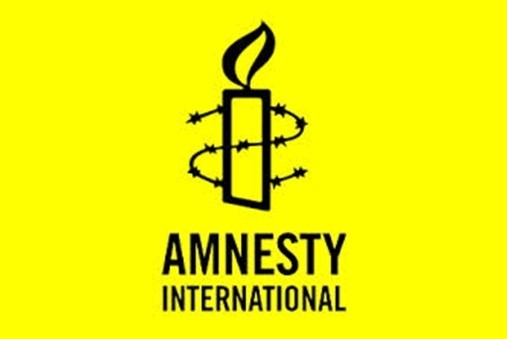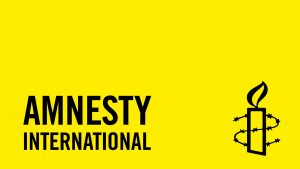Buzainafu Abudourexiti

Amnesty International, 29 September 2017

Buzainafu Abudourexiti, who returned to China in 2015 after studying for two years in Egypt, was suddenly detained in March 2017 and sentenced in a secret trial to seven years in prison. No information has been provided about the charges against her, but it is believed that it may be part of a wider crackdown on Uighur students who studied abroad. Held incommunicado, she is at grave risk of torture and other ill-treatment.
Buzainafu Abudourexiti, a Uighur woman, was taken away from her parents’ house in Urumqi, Xinjiang Uighur Autonomous Region (XUAR), on 29 March 2017 and transferred to the city of Akesu, 1,000km away. According to sources, she was sentenced on 5 June, without any legal representation, to seven years imprisonment and is currently being held at Urumqi Women’s Prison. No official documentation about her case, including what charges she has been convicted of, have been provided to her family. Buzainafu Abudourexiti was pregnant at the time of her arrest, however it is believed that she is no longer with child. Nothing is known about her current health status.
Buzainafu Abudourexiti, went to Egypt to study Islam for two years. She returned to Urumqi in 2015 and worked at her father’s company while learning English. Planning to join her new husband in Australia, she then went back to Egypt in September 2015 to receive the necessary documentation for her visa application. She received the necessary clearance from the Urumqi police department for her visa, and her husband had lodged an application for her spousal visa prior to her detention.
The detention of Buzainafu Abudourexiti may be part of a wider crackdown on the Uighur ethnic minority. According to Radio Free Asia (RFA), Chinese authorities have been compelling Uighur students enrolled in universities abroad to return to China since May 2017. In early July, approximately 200 Uighurs were detained in Egypt by order of the Chinese authorities, with 22 who have been forcibly returned have not been heard from since.
Media reports have illustrated the extent of the new draconian security measures implemented since Chen Quanguo, the new XUAR Party Secretary, came into power in 2016, including over 90,000 new security-related positions being advertised within a one-year period. In October 2016, there were numerous reports that authorities in the region had confiscated Uighur passports in an attempt to further curtail their freedom of movement.
ADDITIONAL INFORMATION
Uighurs are a mainly Muslim ethnic minority who are concentrated primarily in the Xinjiang Uighur Autonomous Region (XUAR) in China. Since the 1980s, the Uighurs have been the target of systematic and extensive human rights violations. This includes arbitrary detention and imprisonment, incommunicado detention, and restrictions on religious freedom as well as cultural and social rights. Local authorities maintain tight control over religious practice, including prohibiting all government employees and children under the age of 18 from worshiping at mosques. Chinese government policies limit the use of the Uighur language, impose severe restrictions on freedom of religion and encourage sustained influx of Han migrants into the region.
In May 2014, a one-year “strike hard” campaign was launched in the XUAR, and officials prioritized speedy arrests, quick trials and mass sentencing of Uighurs. The government called for greater “co-operation” between prosecuting authorities and courts, raising additional concerns that accused individuals would not receive fair trials. The “strike hard” campaign has been extended in the subsequent years, and the authorities have massively increased their expenditure on police. Under such circumstances, many Uighurs make the decision to flee the country. The Chinese authorities have responded by harassing the relatives of those who have left in order to pressure them to return and increasing attempts to curtail the political and human rights activities of Uighur activists in other countries. This has led to growing fears among many Uighurs abroad, including asylum seekers and refugees, of being forcibly returned to China. In recent years, dozens of Uighur asylum seekers have been forcibly returned from South East Asian or Central Asian countries, to China.
In March 2017, the XUAR enacted the “De-extremification Regulation” that identifies and prohibits a wide range of behaviours labelled “extremist”, such as “spreading extremist thought”, denigrating or refusing to watch public radio and TV programmes, wearing burkas, having an “abnormal” beard, resisting national policies, and publishing, downloading, storing, or reading articles, publications, or audio-visual materials containing “extremist content”. The regulation also set up a “responsibility system” for government cadres for “anti-extremism” work, and established annual reviews of their performance.
RFA, the Globe and Mail, and Human Rights Watch have reported that numerous detention facilities have been set up within the region, variously called “counter extremism centres”, “political study centres”, or “education and transformation centres”, in which people are arbitrarily detained for periods of 6-12 months or more and forced to study Chinese laws and policies. Many of the targets are people who have been found praying, holding religious books, or who have been abroad or have family members living abroad.
Name: Buzainafu Abudourexiti
Sources:
Amnesty International, A Uyghur Woman Incommunicado After Secret Trial, 9 November 2017. Available at: https://ua.amnesty.ch/urgent-actions/2017/09/222-17
The Guardian, ‘I miss her so much’: Australian man pleads for wife’s release from Chinese prison, 25 February 2018. Available at: https://www.theguardian.com/australia-news/2018/feb/25/i-miss-her-so-much-australian-man-pleads-for-wifes-release-from-chinese-prison
Radio Free Asia, Australian Uyghur gets Surprise Phone Chat With Incarcerated Mother, 19 August 2019. Available at: https://www.rfa.org/english/news/uyghur/australia-mother-08192019154513.html
[last updated: October 2019]

